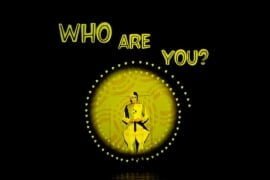Theatre company 1927, with their critically-acclaimed show Golem, have powerfully highlighted the contradictory and alienating nature of technology within modern-day capitalism. As this superbly created satire asks: in this era of monolithic multinational monopolies such as Apple, Amazon, Google, and Facebook, is it we who control technology, or does technology control us?
After a successful spell at the London Young Vic, theatre company 1927 have brought their critically-acclaimed show Golem to the West End, powerfully highlighting the contradictory and alienating nature of technology within modern-day capitalism. The central motif at the heart of this superbly created satire is simple yet potent: in this era of monolithic multinational monopolies such as Apple, Amazon, Google, and Facebook, is it we who control technology, or does technology control us?
Frankenstein’s iPhone
Accompanied by high-tech animated visuals and a part-jazz, part-Jewish score, the satirical commentary of Golem is clear from its storyline. Robert Robertson, a nerdy, socially awkward young worker is stuck in a humdrum life revolving mainly around his monotonous job as a wage-slave within a data-analysis firm. One day, however, he pops into a local inventor’s store and picks up his latest creation: the Golem.
Originally a creature from Jewish folklore, the Golem is a man made from clay, given life through spiritual incantations, and created to serve the commands of his master – like the silicon and metallic microchips of today, animated through the software and computer code of the programmer. In this latest theatrical version, however, the Golem is quickly transformed and developed. Beginning as one of only three individually hand-crafted models, the small businessman’s invention is soon bought up by a faceless corporation Go, who begin to mass produce the Golem.
From his initial clay form, the golem is quickly “upgraded” to Golem 2.0 – a smaller, faster, more efficient model that begins to gain an independence from – and dominance over – his owner and supposed master. A cross between Frankenstein’s monster and Steve Job’s iPhone, Golem 2.0, instead of following his owner’s orders, begins to give Robert recommendations and suggestions on how to “improve” his life.
Appendage of the machine
As Golem 2.0 takes over Robert’s life, so too does Go – the Golem’s monopolistic producer – take over society. Locally-owned coffee shops and diners are gradually replaced by Go Coffee and Go Restaurant, and Robert himself ends up dressing in attire from Go’s clothing store and getting dating advice from Go’s “Courtomatic” service. Robert’s once vibrant and lively town is quickly transformed into a grey, homogenous world, and the love of Robert’s life, Joy, is scrapped for Golem 2.0’s Courtomatic recommendations. At the same time, Robert – Golem in hand – is promoted to supervisor at his work, whilst his colleagues (and friends) are made unemployed, replaced by a team of super-productive Golem 2.0s.
Alienated from his friends and family as a result of his obsession with both the Golem and Go, Robert soon finds himself living out an even more dreary existence than before. His sister Annie, meanwhile, tries to rebel and save her brother – and the rest of the family – from the influence of the Golem. Her solution, however, a Luddite-like destruction of Golem 2.0, ends up backfiring: Go release Golem 3.0 – a microchip implanted into the brain, reading your mind, and sending suggestions directly to your consciousness. With this latest upgrade, the divide between man and machine is completely abolished, and technology takes complete control over our lives – all for the sake of creating a demand for the multitude of commodities produced by the capitalistic corporation Go. In the words of Karl Marx, mankind “becomes an appendage of the machine.”
Future, or now?
Some have described this 1927 production – half-way between a graphic novel and a gothic horror– as a dystopian vision of the future, with the play’s director, Suzanne Andrade, herself claiming it as “not perhaps the Orwellian future but the slightly more Steve Jobs-inspired future.” However, in a world where Amazon and Apple now claim to be able to predict our every desire; where Google and Facebook analyse our every decision in order to better market and advertise a plethora of products at us; and where supposedly “time-saving” devices such as smart phones have ended up controlling our lives and eliminating the barrier between work and leisure: in such a world, it seems that Golem’s vision is not one of a distant future, but is eerily similar to what we see in society today.
As a result, Golem’s central message comes across both clearly and powerfully: rather than developing in harmony, mankind and machine are placed in an antagonistic and contradictory relationship to one another; rather than technology liberating us, it has enslaved us.
At the same time, the strength of Golem’s main message is also the play’s only real weakness. The picture painted is one of nothing more than nihilistic pessimism and resignation: the protagonist – and society in general – slowly and submissively succumbs to the dominance of Go; his rebellious sister – like the Luddites of the 19th century – attempts to resist by destroying the Golem, but her efforts are shown to be little more than an idealistic and futile attempt to turn back the wheel of history. Meanwhile, the omnipotent rule and control of the über-capitalist corporation Go ever increases.
What Golem fails to explain, however, is that it is not technology itself that is the problem, but rather the application of technology within capitalism – a system of competition, private ownership, and production for profit. It is the capitalist system – which divides people both from each other and from the fruit of their labour – that creates the sense of alienation that Golem so accurately portrays. It is the private ownership over industry and ideas, over technology and technique – all employed for the sake of profit, rather than for society’s needs – that leads to us being at the mercy of the machines. And it is the fact that the tremendous productive forces that exist are concentrated in the hands of the few, rather than being democratically and publically owned by the whole of society, that means that we are controlled by technology, rather than being in control of it.
As Marx himself stated, capitalism in the past “has accomplished wonders far surpassing Egyptian pyramids, Roman aqueducts, and Gothic cathedrals”; yet today we look around and everywhere see the contradiction of poverty amidst plenty: people dying of preventable diseases; homelessness alongside empty mansions; mass unemployment for millions existing side-by-side with overwork for millions of others. The task, therefore, is to abolish this contradiction; to realise the extraordinary potential that exists; and thus to raise living standards and increase leisure time for all.
From the kingdom of necessity to the kingdom of freedom
The dystopian vision seen in Golem is ultimately yet another reflection of the pervasive pessimism that exists across the whole of society – itself a reflection of the fact that society is no longer being taken forward, but is instead entrenched in a permanent crisis. On the one hand, our senses are constantly bombarded by media and marketing telling us all about the latest technological wonders that capitalism has created; on the other hand, this same capitalist system drives down living standards, attacking wages and holding this possibility of futuristic decadence permanently out of the reach for the vast majority of ordinary people.
In contrast, the mood amongst Marxists is one of tremendous optimism. Rather than simply seeing the horrors and barbarism that capitalism has produced, we see also the other side of the coin: the mass movements and revolutionary desires of workers and youth, looking for an alternative – looking for a way out. Armed with a revolutionary socialist programme, such movements have the potential to transform society and turn it inside-out.
With the commanding heights of the economy taken out of private hands, and instead placed under a socialist, democratic, rational plan of production, the antagonism between mankind and machine will be abolished, and for the first time we will be in control of the enormous technological and productive forces that society has created. What such a future socialist society would look like exactly, we cannot say for certain; but the possibilities will be endless. In the words of Engels:
With the seizing of the means of production by society, production of commodities is done away with, and, simultaneously, the mastery of the product over the producer. Anarchy in social production is replaced by systematic, definite organisation. The struggle for individual existence disappears. Then, for the first time, man, in a certain sense, is finally marked off from the rest of the animal kingdom, and emerges from mere animal conditions of existence into really human ones. The whole sphere of the conditions of life which environ man, and which have hitherto ruled man, now comes under the dominion and control of man, who for the first time becomes the real, conscious lord of nature, because he has now become master of his own social organisation. The laws of his own social action, hitherto standing face-to-face with man as laws of Nature foreign to, and dominating him, will then be used with full understanding, and so mastered by him. Man’s own social organisation, hitherto confronting him as a necessity imposed by Nature and history, now becomes the result of his own free action. The extraneous objective forces that have, hitherto, governed history, pass under the control of man himself. Only from that time will man himself, more and more consciously, make his own history — only from that time will the social causes set in movement by him have, in the main and in a constantly growing measure, the results intended by him. It is the ascent of man from the kingdom of necessity to the kingdom of freedom. (Frederick Engels, Socialism: Utopian and Scientific)






